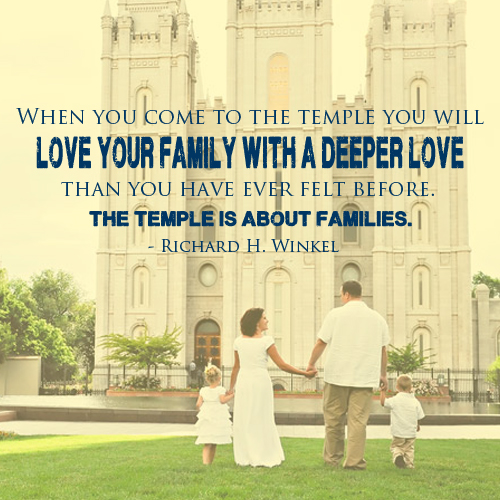
by Charlotte Wilson | Aug 31, 2013 | About Mormons
Members of The Church of Jesus Christ of Latter-day Saints (a faith often inadvertently referred to as the Mormon church) are subject to many stereotypes. One of the biggest assumptions about Mormons is that they have large families. Many Mormon parents have seven, eight, even ten children, sometimes more. While having large families isn’t part of Mormon dogma, bearing and raising children is. In a statement issued by the late church president Gordon B. Hinckley in 1995, he states, “The family is central to to the Creator’s plan for the eternal destiny of His children. . . . God’s commandment for His children to multiply and replenish the earth remains in force” (“The Family: A Proclamation to the World”).
Apart from this dramatic statement, church leadership leaves family planning to the discretion of each individual family unit. The fact that Mormons are known for their families is significant: Mormons value children and investing in parenthood.[1]
Families Are Forever
 One of the key doctrines of The Church of Jesus Christ centers on the family. Mormons believe that sacred ordinances performed in the temple can ensure eternal families. Mormon men and women are encouraged to prepare themselves for the temple, which isn’t open to the general public as the chapel meetinghouses are. Temples are reserved for sacred ordinances that prepare us for the eternities. One of the most significant ceremonies performed in temples is the sealing ceremony. A sealing is the term Mormons use for a temple wedding. These ordinances are different from civil weddings because the officiants’ authority does not extend through just this life. Men and women sealed together are married for time and all eternity. No civil officiant has the power to extend a marriage beyond death. Eternal marriage is unique to The Church of Jesus Christ and essential for eternal families. (more…)
One of the key doctrines of The Church of Jesus Christ centers on the family. Mormons believe that sacred ordinances performed in the temple can ensure eternal families. Mormon men and women are encouraged to prepare themselves for the temple, which isn’t open to the general public as the chapel meetinghouses are. Temples are reserved for sacred ordinances that prepare us for the eternities. One of the most significant ceremonies performed in temples is the sealing ceremony. A sealing is the term Mormons use for a temple wedding. These ordinances are different from civil weddings because the officiants’ authority does not extend through just this life. Men and women sealed together are married for time and all eternity. No civil officiant has the power to extend a marriage beyond death. Eternal marriage is unique to The Church of Jesus Christ and essential for eternal families. (more…)
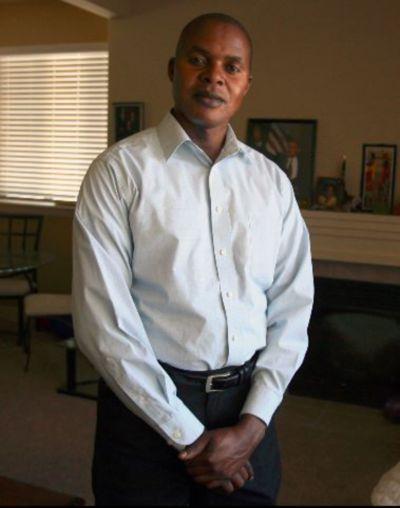
by Keith L. Brown | Jun 12, 2013 | About Mormons
For a period of time in the history of The Church of Jesus Christ of Latter-day Saints (inadvertently referred to as the Mormon Church by the media and others), male members of African descent were denied the privilege of bearing the priesthood. There has never been given any direct reasons as to why the restriction occurred, or how, or when, it became a policy of The Church of Jesus Christ. What some empirical research has shown, however, is that the lineage of an individual was more of a significant criteria for denying a person the priesthood, than his race, or the color of his skin.
Of monumental interest is that during the time of the priesthood restriction, by faith, and believing that one day every worthy male would be able to hold the priesthood, Blacks continued to become members of The Church of Jesus Christ. Male members of African descent served in various callings and magnified those callings, however, they could not administer priesthood blessings, or participate in the sacred ordinances of the temple.
The Church of Jesus Christ Does Not Condone Racism
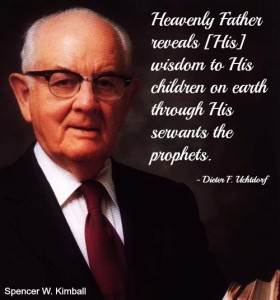 The fact that a priesthood restriction existed at one time in The Church of Jesus Christ that excluded male members of African descent, may cause some people to infer that the Church is racist, however, nothing could be further from the truth. The Church of Jesus Christ has always opened its doors and has always been accepting of any person, regardless of race, who is willing to embrace the teachings of the restored gospel of Jesus Christ, and who is willing to strive to live his life in accordance to the doctrines and principles found therein. (more…)
The fact that a priesthood restriction existed at one time in The Church of Jesus Christ that excluded male members of African descent, may cause some people to infer that the Church is racist, however, nothing could be further from the truth. The Church of Jesus Christ has always opened its doors and has always been accepting of any person, regardless of race, who is willing to embrace the teachings of the restored gospel of Jesus Christ, and who is willing to strive to live his life in accordance to the doctrines and principles found therein. (more…)

by Lisa M. | Feb 18, 2013 | About Mormons
Mormons, or members of The Church of Jesus Christ of Latter-day Saints, believe that prophets, or leaders of the Church, are chosen and called of God. Prophets and apostles are called to serve the Lord for the rest of their lives, as were the apostles in Christ’s ancient Church. A prophet’s resignation is always possible, because Mormons believe in the divine gift of choice. A more accurate question is: Would a Mormon prophet ever resign?
The first thought that comes to me is the story of the ancient prophet Jonah. Jonah was commanded by God to preach to the Ninevites. Of course, the first things that pop into my head are the bright and cheery songs from the Veggie Tales’ movie. But the reality is a bit more serious. In Jonah 1, God instructs the prophet to go to Nineveh and tell the people to repent or be destroyed. Jonah 1:3 records his response: “But Jonah rose up to flee unto Tarshish from the presence of the Lord.” He bought passage on a boat sailing in the opposite direction of Nineveh. A great storm arose, and the mariners on the ship were scared. They cast lots to see which person was causing this evil, and the lot fell on Jonah. He admitted that he had fled from the Lord. To save themselves, the mariners cast Jonah into the sea. The sea stopped raging, and Jonah was swallowed by a great fish. (more…)
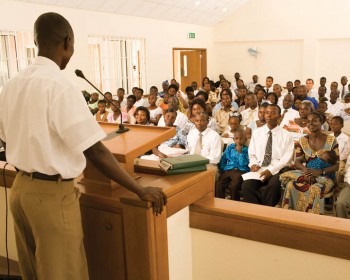
by | Mar 13, 2012 | About Mormons
Mormons Not FLDS
The general term “Mormonism” can be used to represent members of three different Mormon branches. The largest and most familiar branch is known as the Church of Jesus 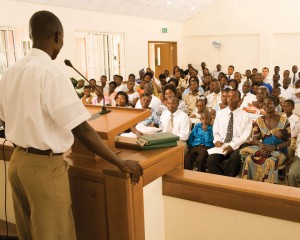 Christ of Latter-day Saints, and members of this church often have strong adverse feelings with being associated with the other two branches known as the Reorganized Latter-day Saints and the Fundamentalist Latter-day Saints due to their rejection of the prophets and practice of unseemly traditions. We are, however, connected in our history- (more…)
Christ of Latter-day Saints, and members of this church often have strong adverse feelings with being associated with the other two branches known as the Reorganized Latter-day Saints and the Fundamentalist Latter-day Saints due to their rejection of the prophets and practice of unseemly traditions. We are, however, connected in our history- (more…)
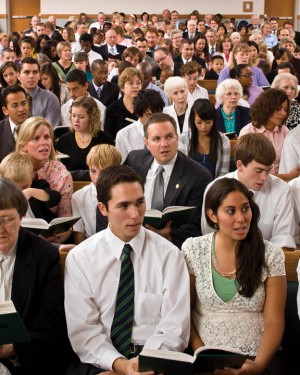
by brady | Mar 13, 2012 | About Mormons
Mormons Not FLDS
The simple answer is ‘no’.
The historically informed and more complete answer is ‘yes, there is a historical connection’. Mormons (members of The Church of Jesus Christ of Latter-day Saints) do not share many of the beliefs of the Fundamentalist Church of Jesus Christ of Latter-day Saints (FLDS) Church, though there are a few that are shared.
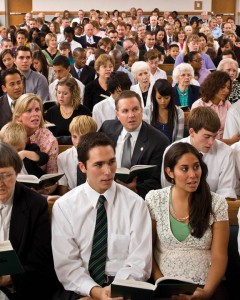 Both churches believe in the concept of “continuing revelation” — that the heavens are not closed, and that prophets do in reality live today, in our time, and speak for God to all mankind. Both churches also believe that the Book of Mormon is another testament of Jesus Christ, and as such is scripture. This is why FLDS members still consider themselves “Mormons”, which the LDS Church disputes. (more…)
Both churches believe in the concept of “continuing revelation” — that the heavens are not closed, and that prophets do in reality live today, in our time, and speak for God to all mankind. Both churches also believe that the Book of Mormon is another testament of Jesus Christ, and as such is scripture. This is why FLDS members still consider themselves “Mormons”, which the LDS Church disputes. (more…)

 One of the key doctrines of The Church of Jesus Christ centers on the family. Mormons believe that sacred ordinances performed in the temple can ensure eternal families. Mormon men and women are encouraged to prepare themselves for the temple, which isn’t open to the general public as the chapel meetinghouses are. Temples are reserved for sacred ordinances that prepare us for the eternities. One of the most significant ceremonies performed in temples is the sealing ceremony. A sealing is the term Mormons use for a temple wedding. These ordinances are different from civil weddings because the officiants’ authority does not extend through just this life. Men and women sealed together are married for time and all eternity. No civil officiant has the power to extend a marriage beyond death. Eternal marriage is unique to The Church of Jesus Christ and essential for eternal families. (more…)
One of the key doctrines of The Church of Jesus Christ centers on the family. Mormons believe that sacred ordinances performed in the temple can ensure eternal families. Mormon men and women are encouraged to prepare themselves for the temple, which isn’t open to the general public as the chapel meetinghouses are. Temples are reserved for sacred ordinances that prepare us for the eternities. One of the most significant ceremonies performed in temples is the sealing ceremony. A sealing is the term Mormons use for a temple wedding. These ordinances are different from civil weddings because the officiants’ authority does not extend through just this life. Men and women sealed together are married for time and all eternity. No civil officiant has the power to extend a marriage beyond death. Eternal marriage is unique to The Church of Jesus Christ and essential for eternal families. (more…)




 Christ of Latter-day Saints, and members of this church often have strong adverse feelings with being associated with the other two branches known as the Reorganized Latter-day Saints and the Fundamentalist Latter-day Saints due to their rejection of the prophets and practice of unseemly traditions. We are, however, connected in our history-
Christ of Latter-day Saints, and members of this church often have strong adverse feelings with being associated with the other two branches known as the Reorganized Latter-day Saints and the Fundamentalist Latter-day Saints due to their rejection of the prophets and practice of unseemly traditions. We are, however, connected in our history- 
